Revised August 29, 2025
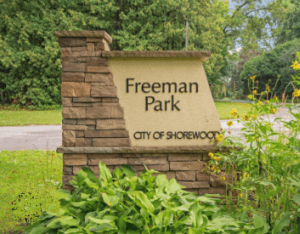
Freeman Park: An Experiment in Renewal
Freeman Park has been busy this summer.
- Approximately half of the wooded areas have been cleared of buckthorn. An Altoz tracked mower with a deck and brush mower was purchased to keep any new growth of buckthorn under control.
- Since July, about 100 ash trees have been removed and another 50 are prepped for removal. The Hennepin County STS program has been part of the project along with Public Works. The work should continue for at least six months. Contractors will be used to bring down some of the larger trees near the volleyball court.
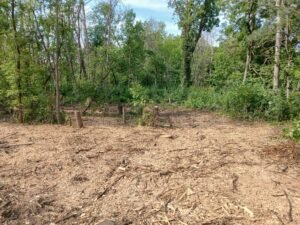
- Approximately 140 new trees have been planted to replace the devastating loss of ash trees.
- U of M Professor Mike Shuster and his students continue with the experimental plot of buckthorn in the southwest wooded area. They are studying different methods to remove buckthorn without chemicals, at no cost to the city. Test areas are marked.
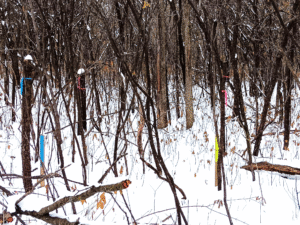
- Park advocate and dedicated volunteer, Barry Brown, has repurposed some of that ash wood into a beautiful (and appreciated) bench located on the woodland behind Burlwood Court, near the split rail fence. He hopes to add more in the future.
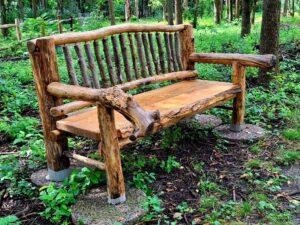

Lilac Distress
Dying leaves on the lilacs are showing up again this summer. The fungal disease Septoria leaf blight (also referred to as Pseudocercospora leaf blight) has existed in Minnesota landscapes for some time. During dry growing seasons, it is less noticeable until around mid-August or early September.
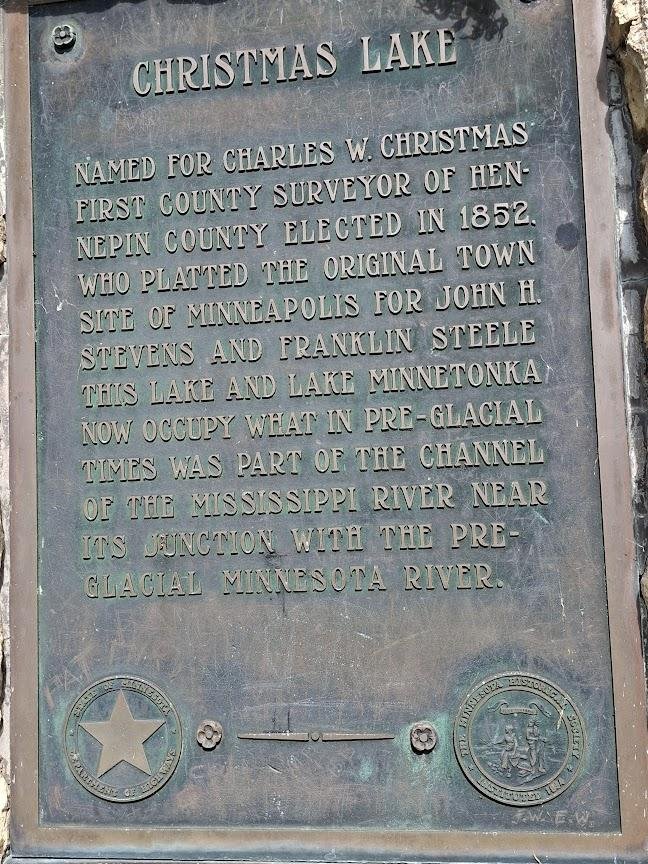
Mr. Christmas and His Lake:
Christmas Lake, located in eastern Shorewood and extending south into Chanhassen, is a 265 acre lake. Because it is spring-fed and has a sandy bottom, it has an exceptional clarity level of 20 feet.
Charles W. Christmas was the first surveyor of Hennepin County. He surveyed the area and named the lake after himself. The naming is said to have originated following a wet night in a snowstorm with Surveyor Christmas and a whiskey jug. Christmas also platted the original town site of Minneapolis.
Native American Dakota and Ojibwe tribes had inhabited the area for hundreds of years. It was part of the Louisiana Purchase in 1803. In 1851 treaties were signed with the Natives opening 35 million acres west of the Mississippi to a surge of European immigrants. Trails from Chief Shakopee’s village on the Minnesota River were marked, including a road to St. Anthony along Hog Ridge (now Ridge Road) between Christmas Lake and Silver Lake.
By 1855, Christmas Lake was showing up on maps of the area. Christmas Lake Park, along both the north and south sides of Highway 7 was designed by Arthur Nichols, and built in the 1930s under FDR’s New Deal.
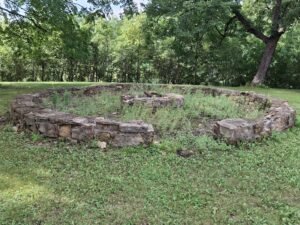
Christmas Lake Park was designed by Arthur Nichols, a consulting landscape architect for Minnesota’s Highway Department from 1932-40. He was influenced by the “Rustic Style” of landscaping.
This photo shows the remnants of the “council circle” on the south bluff over Hwy. 7
Source: ChristmasLake.org
Was this post useful?
Average rating 5 / 5. Vote count: 8
No votes so far! Be the first to rate this post.














